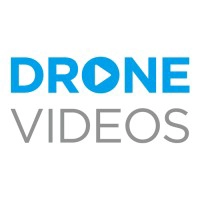Delivery drones make up approximately 10% to 15% of the global commercial drone market. Valued at $2.39 billion in 2024, the drone package delivery sector is projected to grow at a compound annual growth rate (CAGR) of 36.8%, potentially reaching $29.3 billion by 2032. A mix of startups, logistics giants, and tech companies are driving this growth, with Zipline emerging as one of the most dominant players in the space.
Zipline was founded in 2014 by Keller Rinaudo Cliffton, a Harvard graduate and former professional rock climber with a background in robotics. Alongside co-founders Keenan Wyrobek and William Hetzler, Rinaudo launched the company with a vision of using autonomous drones to deliver essential medical supplies to remote and underserved areas. The team began by building and testing early prototypes in Half Moon Bay, California, about 25 miles south of San Francisco, where the company is headquartered. Their mission was to address critical challenges in global health logistics, particularly in regions where poor infrastructure made timely deliveries difficult or impossible.
Zipline’s first major deployment came in 2016 through a partnership with the Rwandan government, delivering blood and medical supplies to rural hospitals by drone. This groundbreaking initiative proved the real-world viability of their system and positioned Zipline as a pioneer in the drone delivery sector. The company then expanded to Ghana, Nigeria, and Kenya, continuing to focus on healthcare logistics before gradually entering the consumer delivery market. Today, Zipline operates in multiple countries and is globally recognized for completing millions of autonomous deliveries.
The company began operating in the United States in May 2020, launching its first domestic service in North Carolina through a partnership with Novant Health. Using an emergency waiver from the Federal Aviation Administration (FAA) during the early months of the COVID-19 pandemic, Zipline delivered personal protective equipment and medical supplies between a distribution hub in Kannapolis and nearby hospitals, marking the first long-range drone logistics flights in U.S. controlled airspace.
Building on that momentum, Zipline expanded into commercial retail delivery in November 2021, teaming up with Walmart to provide drone-based delivery of health and wellness products from a store in Pea Ridge, Arkansas. The company further grew its U.S. presence in October 2022, launching services in Salt Lake City, Utah, through partnerships with healthcare providers like Intermountain Healthcare. In November 2023, Zipline made aviation history by completing its first Beyond Visual Line of Sight (BVLOS) drone flight in Salt Lake City, a key milestone that paved the way for large-scale operations across the country.
On June 6, 2025, President Donald Trump signed the Unleashing American Drone Dominance executive order, mandating the FAA to adopt a streamlined Part 108 rule specifically for small autonomous drones, replacing the more burdensome, aircraft-centric Part 135 certification. As a result, the FAA granted Zipline permission to conduct BVLOS operations nationwide, allowing its drones to fly up to 10 miles per mission across all 50 U.S. states, a first-of-its-kind allowance.
CEO Keller Rinaudo Cliffton celebrated the milestone, noting that Zipline had already logged 50 million autonomous flight miles outside the U.S. before earning BVLOS clearance at home. “The EO [Executive Order] directs the FAA to create a new rule (Part 108) that will dramatically simplify regulations for vehicles that are 100 times smaller than cars, rather than 100 times larger. And BVLOS will become a standard and expected capability for these systems,” he said.
He emphasized that Part 108 allows for broader hub approvals and significantly reduces lengthy environmental reviews, such as those required under the National Environmental Policy Act (NEPA). The new policy also modernizes regulations for lithium battery transport and digitizes airspace management around sensitive sites, changes that align with Zipline’s vision for rapid, scalable drone deployment.
With this regulatory breakthrough, Zipline is poised to rapidly expand across metro areas, delivering medical supplies, groceries, and consumer goods at speeds of up to 70 mph, with drone flights routinely covering a 10-mile radius, a range previously restricted under FAA rules. This advancement, coupled with Zipline’s proven safety record and operational success, positions the company at the forefront of a rapidly growing global drone delivery market. As delivery drones capture an increasing share of the broader commercial drone industry, Zipline’s growth signals a future where autonomous drone delivery becomes an essential part of everyday logistics, transforming how critical supplies and consumer goods reach communities nationwide.



